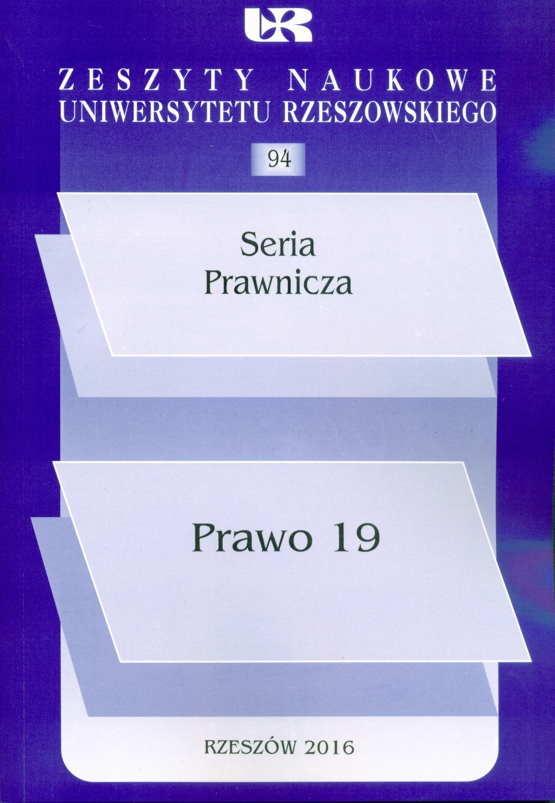Oath of office in the light of U.S. case law
DOI:
https://doi.org/10.15584/znurprawo.2016.19.7Keywords:
oath of office, The United States of America, case law, human rights and freedomsAbstract
The article deals with the oath of office as one legally relevant category of oath – beside the witness oath and the citizenship oath – in the United States legal order. The given kind of oath takes a person who undertakes the duties of an public office (e.g. U.S. President), profession of public trust (e.g. Attorney) or duties of public function (e.g. juror in the jury). A study of the case law proves that the obligation to take an oath may be in conflict with the constitutionally protected rights and freedoms of U.S. residents, in particular freedom of expression, freedom of association and freedom of conscience and religion. US courts usually hold that the oath of office requirement is constitutional, provided the oath’s text is not vague and overbroad and the oath’s formula is the result of a proportional balancing of competing values. The jurisdiction shows that the title category plays in the United States a far greater role than in Europe. The oath of office establishes a legal, moral and often religious public officer’s commitment to the office and to citizens as the sovereign. It is part of the ethos of public service.
Downloads
Downloads
Published
How to Cite
Issue
Section
License
Copyright (c) 2016 Acta Iuridica Resoviensia

This work is licensed under a Creative Commons Attribution-NonCommercial-NoDerivatives 4.0 International License.

